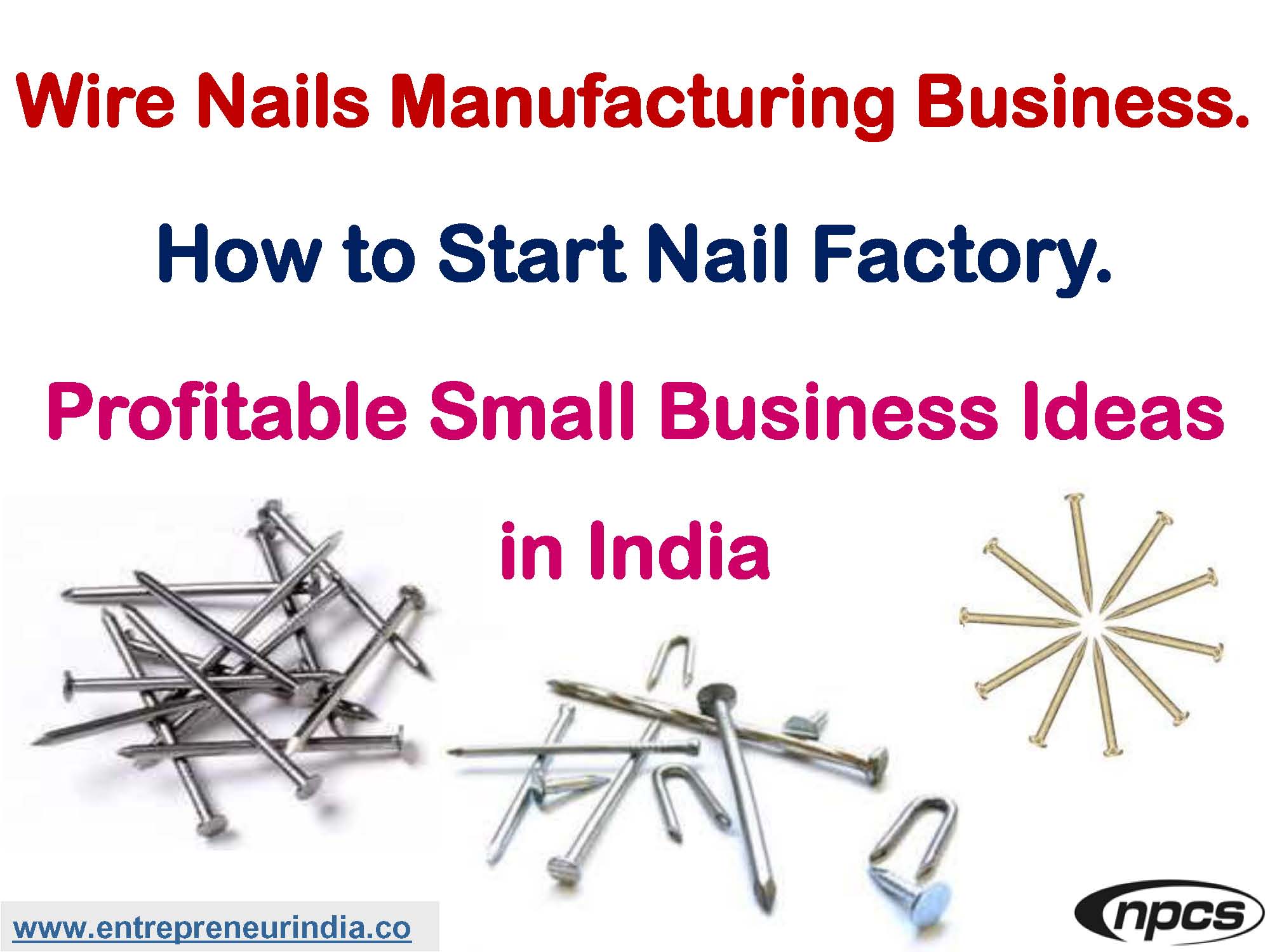
Starting a small or medium-scale manufacturing unit for nails—both common iron nails and specialized construction nails—can be a highly profitable venture, especially in developing markets. Nails are essential in construction, furniture making, packaging, and general hardware usage. If you’re an aspiring entrepreneur asking, how to start nail factory, this guide will walk you through the essential steps. From market analysis and machinery to production processes and compliance, starting a nail manufacturing unit requires moderate investment and offers excellent scope for scalability.
Step-by-Step Guide: How to Start Nail Factory
Below is a structured plan to help you set up your nail manufacturing business from scratch.
1. Market Research and Business Scope
Before starting your nail factory, conduct proper research to understand the market demand, competition, and types of nails that sell best in your region.
Key Products Include:
-
Common iron nails
-
Concrete nails
-
Coil nails
-
Roofing nails
-
Wire nails
Why Research Matters:
Knowing what sells in your area ensures you produce in-demand items. Moreover, understanding market gaps helps you position your factory more competitively.
See More – Want to Start a Business in Karnataka
2. Create a Business Plan and Cost Estimation
Your business plan should outline:
-
Type of nails to be manufactured
-
Target markets (local retailers, construction companies, exporters)
-
Initial production capacity (e.g., 1–2 tons/day)
-
Investment breakdown (machinery, raw material, labor, rent)
-
Expected ROI and profit margins
Estimated Startup Costs:
-
Small-scale factory: ?15–25 lakhs
-
Medium-scale unit: ?30–50 lakhs or more
Pro Tip:
Add a margin for working capital, inventory storage, and minor repairs for machinery.
3. Legal Requirements and Licensing
To legally start your nail factory, you must obtain specific licenses and registrations:
Essential Documents:
-
Company registration (Sole Proprietorship, LLP, or Pvt. Ltd.)
-
Udyam/MSME Registration
-
GST registration
-
Factory license (if employing 10+ workers)
-
NOC from local pollution control board
Additional:
For export-oriented units, register with the Director General of Foreign Trade (DGFT) and get an IEC (Import Export Code).
4. Choose Factory Location and Setup
Pick an industrial or semi-industrial area with access to transportation, labor, and electricity.
Factory Space Required:
-
Small unit: 1,000–1,500 sq. ft.
-
Medium unit: 2,000–4,000 sq. ft.
Layout Tips:
-
Allocate zones for raw materials, machine installation, finished goods, and quality control.
-
Ensure proper ventilation and safety equipment for workers.
5. Procure Machinery and Equipment
Nail manufacturing involves wire drawing, cutting, shaping, polishing, and packing. You’ll need:
Core Machines:
-
Wire Drawing Machine (to reduce wire thickness)
-
Nail Making Machine (for cutting and head formation)
-
Polishing Barrel (for cleaning and finishing)
-
Cutter Grinder (to sharpen tools)
-
Packaging Machine
Machinery Cost Estimate:
?10–25 lakhs depending on capacity and automation level.
Note:
Imported machines may offer higher output but cost more.
6. Raw Material Procurement
The basic raw material used for nail manufacturing is drawn or mild steel wire (MS wire).
Other Inputs:
-
Lubricants and polishing powders
-
Packaging boxes, labels, plastic bags
Best Practices:
-
Source wires from reputed steel wire manufacturers.
-
Buy in bulk to reduce procurement costs.
Also Read – Want to Start a Business in Karnataka
7. Manufacturing Process
Once your setup is ready, you can begin production. The steps are:
-
Wire Drawing: Thick steel wires are reduced to required diameters using wire drawing machines.
-
Nail Making: Cut the wires and form heads using nail-making machines.
-
Polishing: Nails are polished to remove sharp edges and enhance shine.
-
Sorting and Packaging: Final nails are sorted by size and packed for distribution.
Cycle Time:
You can produce up to 700–1,000 nails per minute with modern machines.
Tip:
Always perform quality checks for proper head shape, smooth surface, and uniform size.
8. Branding and Packaging
Even in a B2B environment, good packaging boosts credibility and trust.
Packaging Tips:
-
Use moisture-proof bags or boxes
-
Label with weight, type, and brand logo
-
Offer both wholesale and retail packaging options
Bonus Tip:
Consider private labeling services if supplying to retailers or builders who want branded products.
9. Sales and Marketing Strategy
Having an effective marketing plan is crucial to sustain and grow your business.
Sales Channels:
-
Local hardware stores and building material retailers
-
Distributors and wholesalers
-
Construction companies and contractors
-
E-commerce or B2B platforms like IndiaMART, TradeIndia, Alibaba
Marketing Tactics:
-
Offer bulk discounts and quick delivery
-
Provide consistent quality and build a brand reputation
-
Attend hardware expos and trade shows to find buyers
Export Potential:
Many countries import nails, especially in bulk packaging. Countries in Africa, the Middle East, and Southeast Asia are big buyers.
Conclusion
If you’ve been asking, how to start nail factory, the opportunity is wide open. With moderate investment and consistent demand from construction and packaging industries, nail manufacturing is a solid choice for entrepreneurs. The production process is straightforward, machinery is readily available, and the product is non-perishable—making logistics simple. Focus on building strong supply chains, maintaining consistent quality, and exploring new markets for scaling. Whether you target local retailers or international buyers, starting a nail factory can turn into a profitable and sustainable venture.





